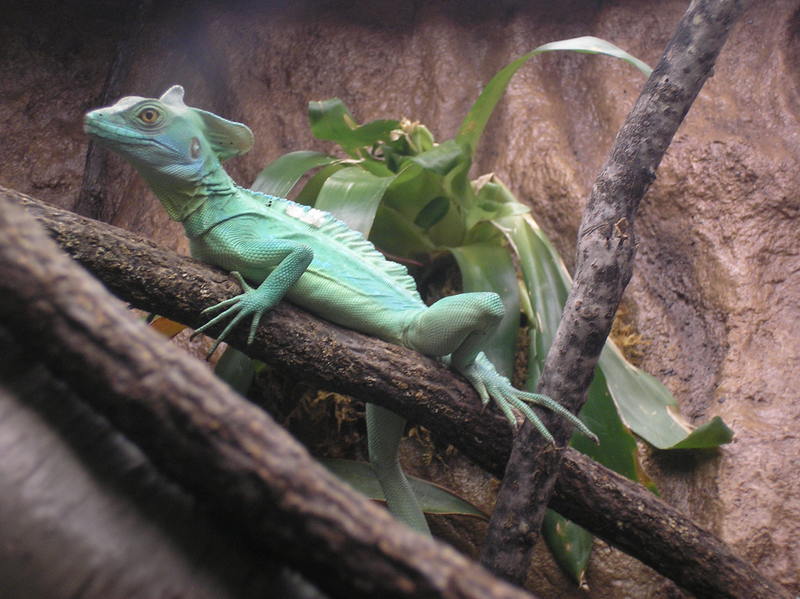|
| Query: basilisk | Result: 4th of 42 | |
Basilisk (Family: Corytophanidae, Genus: Basiliscus) - Wiki
| Subject: | Basilisk (Family: Corytophanidae, Genus: Basiliscus) - Wiki
| |

| Resolution: 2288x1712
File Size: 728979 Bytes
Date: 2006:09:24 21:35:16
Camera: X550,D545Z,C480Z (OLYMPUS IMAGING CORP.)
F number: f/2.8
Exposure: 10/300 sec
Focal Length: 180/10
Upload Date: 2007:10:25 15:12:06
|
Basilisk (Family: Corytophanidae, Genus: Basiliscus) - Wiki
Basiliscus (genus)
From Wikipedia, the free encyclopedia
[Photo] Plumed Basilisk (Basiliscus plumifrons); Green Basilisk - Basiliscus Plumifrons - Museum of Natural History - Picture taken by deror avi (http://commons.wikimedia.org/wiki/User:Deror_avi) on 24th September 2006. (The copyright holder of this file allows anyone to use it for any purpose, provided that the copyright holder is properly attributed.)
Scientific classification
Kingdom: Animalia
Phylum: Chordata
Class: Sauropsida
Order: Squamata
Family: Corytophanidae
Genus: Basiliscus Laurenti, 1768
Species
Basiliscus basiliscus
Basiliscus galeritus
Basiliscus plumifrons
Basiliscus vittatus
Basiliscus is a genus of lizards that includes the basilisks.
Physiology
With mackled blue spots and a yellow iris, its length is an average of about 70 to 75 cm (28 in - 30 in). The average weight is about 80 grams (3.2 oz). Its growth is perpetual, fast when they are young and nonlinear for mature basilisks. Its long crest-like sails reinforced in three distinct points (head, back, and tail) confers the impression of creatures such as Dimetrodon and Spinosaurus. Its skin is shed in pieces.
The miracle
The basilisk sometimes walks as a biped. Basilisks have the unique ability to "walk" on water and, because of this, have coined the title as "The Jesus Lizard" or "The Jesus Christ Lizard" with religious connotations to the biblical passage of Matthew 14:22-34. On water, the basilisk can run at a velocity of 1.5 meters (5 feet) a second for approximately 4.5 meters (15 feet) before sinking on all fours and swimming. Flaps between their toes help support the basilisk, creating a larger surface and a packet of air.
Habitat
They are generally found in Latin America anywhere there is a body of water (usually from Central Mexico to Ecuador). Recently introduced to Florida, it has adapted to the colder winters by burrowing into the leaf litter for warmth. Current reports sight the basilisk as far north as Fort Pierce, on the state's East Coast, where small groups have crept up the North Fork of the Saint Lucie River.
Classification
Genus Basiliscus
Common basilisk, Basiliscus basiliscus
Red-headed basilisk, Basiliscus galeritus
Plumed basilisk, Basiliscus plumifrons
Striped or Brown Basilisk, Basiliscus vittatus
http://en.wikipedia.org/wiki/Basiliscus_%28genus%29
| The text in this page is based on the copyrighted Wikipedia article shown in above URL. It is used under the GNU Free Documentation License. You may redistribute it, verbatim or modified, providing that you comply with the terms of the GFDL. |
|
^o^
Animal Pictures Archive for smart phones
^o^
|
|

